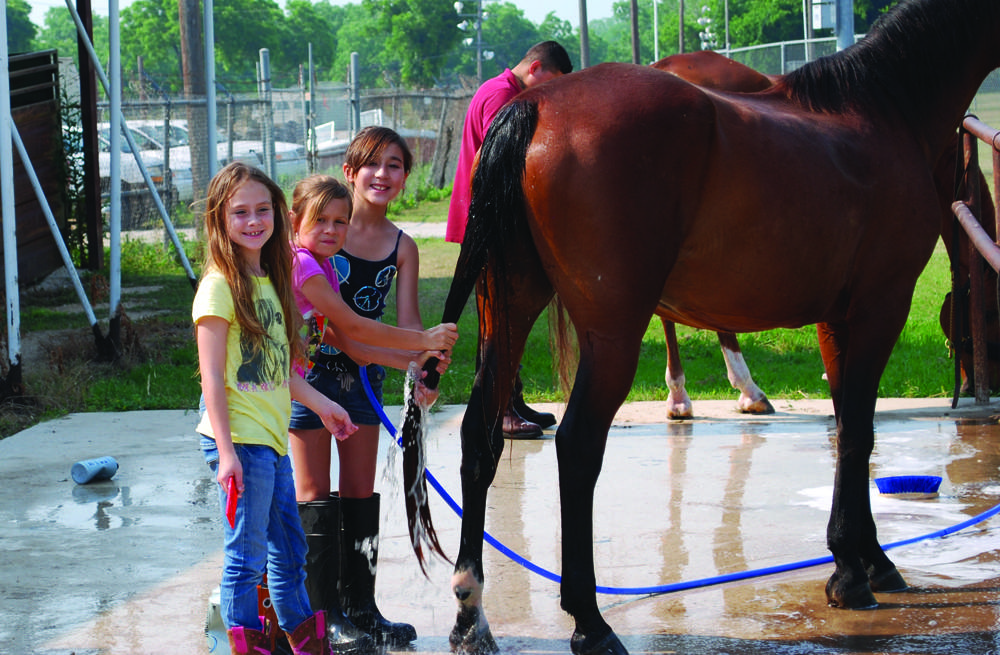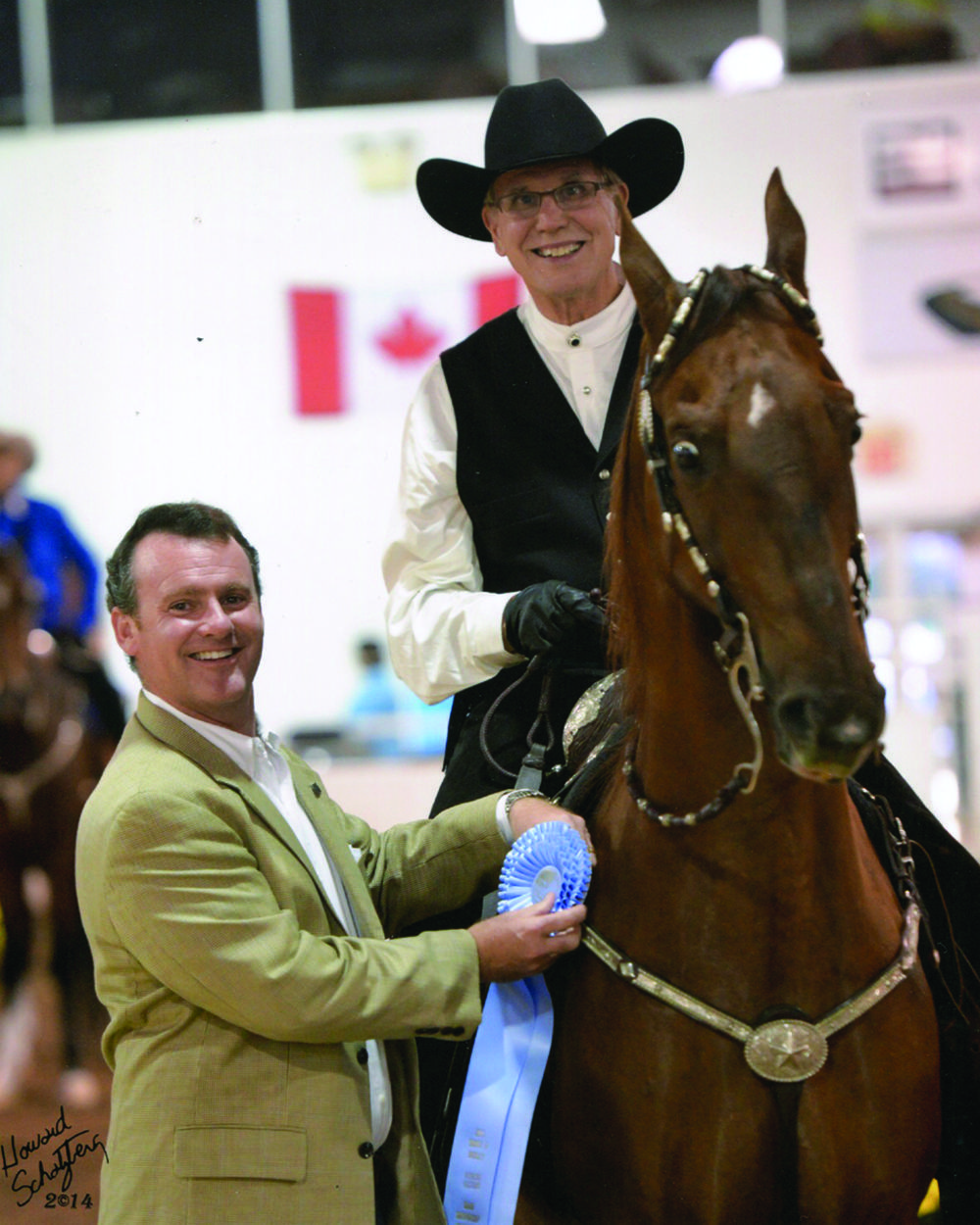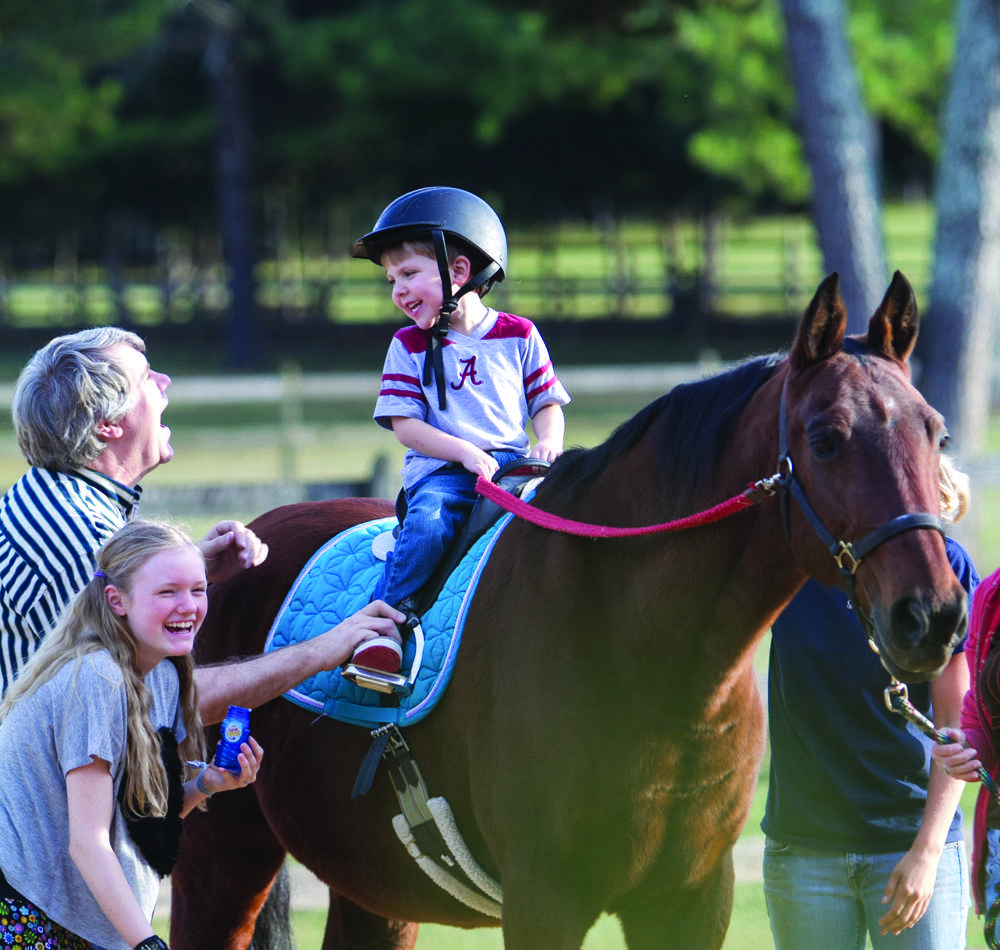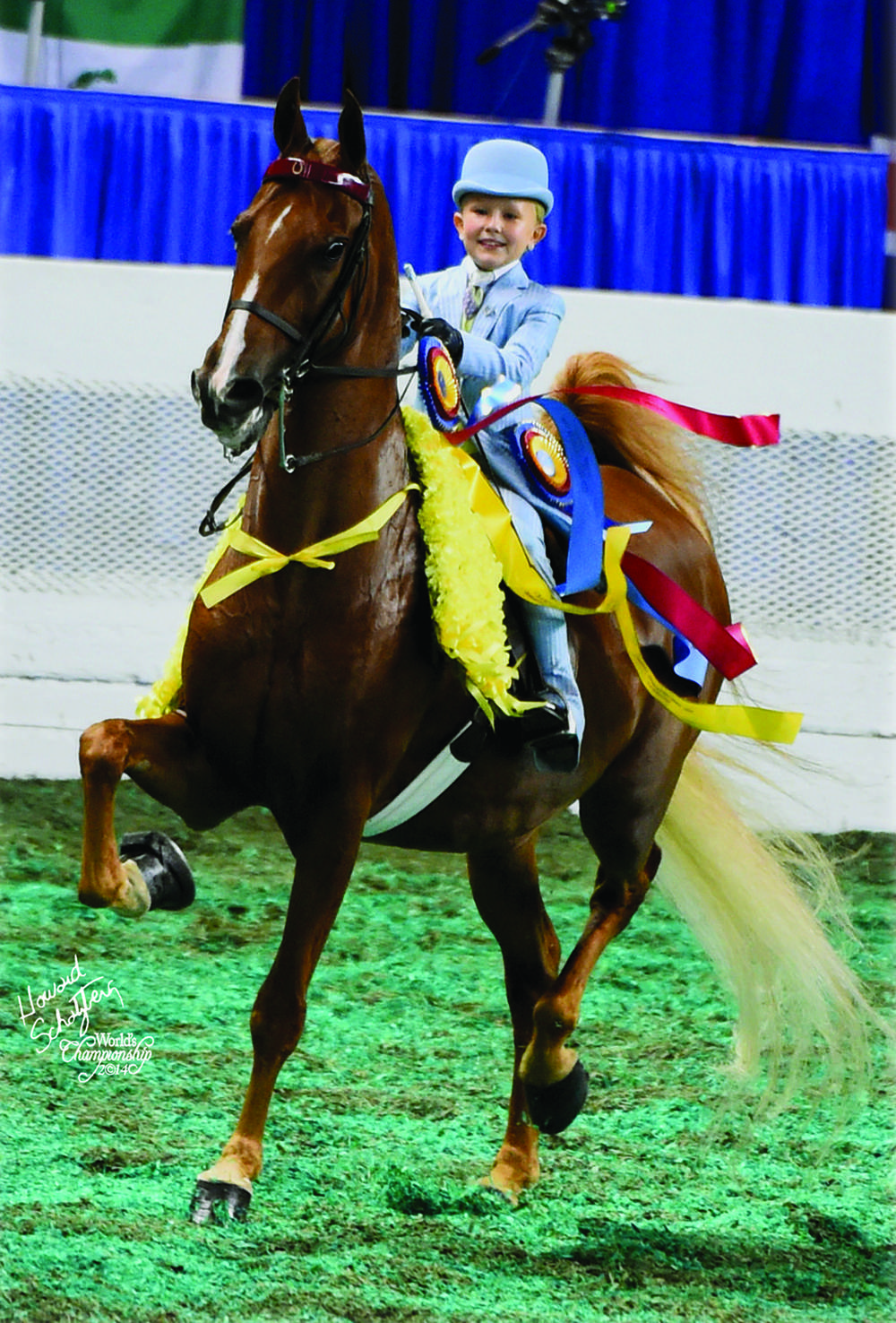
It’s easy to get down on the show horse world. When you’re dealing with expensive and sensitive animals like Saddlebred horses the stakes are high, and so is the number of things that can – and do – go wrong.
Horses get sick, go lame and pull shoes. Riders get injured before big shows or miss leads or diagonals in the ring. People make thoughtless or hurtful comments in moments of tension that find their way back to your ears. There is always someone better than you and someone who has more money than you. And, of course, the judges’ decisions don’t always match your own.
But, while it’s easy to forget in the difficult times, being a part of the show horse industry also comes with a multitude of blessings, and this holiday season seems like an appropriate time to take a step back and remember why we first fell in love with an industry that may be fast-paced and competitive, but is also supportive, informative, challenging and even life-affirming.
Horses and learning
Anyone who is involved with horses knows that they teach responsibility, perseverance, patience, humility, confidence and kindness. They teach us how to put others before ourselves and how to communicate clearly, both with and without words – seemingly rare skills in the outside world. Since there is always something new to master, in and out of the saddle, horses also teach us to be constant learners, and to always give our best effort. They don’t care that you intended to cue for the lead correctly, they only care whether you did or not. It is the rare and generous horse who gives out gold stars just for trying, and their perfectly imperfect responses teach us the vital difference between intention and action. What’s more, if we raise them in the horse world, our children grow up understanding this from an early age, too, at a time when the outside world consists of participation trophies and stickers just for showing up. There is more to life, horses tell us, than just trying. To get what you want, sometimes you actually have to achieve.
Perhaps one of the best things about horses is that they show no impartiality. As the seventeenth-century writer Ben Jonson wrote, “They say princes learn no art truly but the art of horsemanship. The reason is, the brave best is no flatterer. He will throw a prince as soon as his groom.” Horses today haven’t changed a bit, and in a world where money sometimes seems to dictate so much, our horses remind us to look past appearances and to judge and treat people based on their hearts and actions rather than more superficial things. Horses don’t care how much money you have, how fancy your clothes are, or whether you rent one home or own three. They care about whether you mean them harm or ill, whether your energy is calming or jarring, and, sometimes, whether or not you’re trying to catch them or just give them a carrot. All these important life lessons would be hard to learn without the horse to teach us, and for that we owe them our gratitude.
Horses and health
One of the other great benefits of riding, especially riding competitively, is that it keeps you physically fit. While the uninitiated mistakenly believe the horse does all the work, equestrians know better. Sure, an unfit person can hop on a horse and ride in a circle, but to keep up with a powerful horse like a Saddlebred at the top of its game, you need to be at the top of your game, too, and there are few better incentives for staying in shape than a 1,200-pound horse who can theoretically take off with you whenever the mood strikes him.

As all equestrians know, riding builds core strength, balance, coordination, muscle tone and flexibility. And, according to a 2015 study by Texas A&M professor Dr. Dennis Sigler, riding a horse for 45 minutes at a walk, trot and canter burns around 200 calories.
What’s even better, unlike baseball or football, you can continue riding and competing with horses your entire life. How lucky are we to have found a sport we love that keeps us healthy that we don’t have to give up at 35?
Horses and spirituality
While physical fitness is a great blessing that flows from being around horses, the benefits to our mental and spiritual health are equally important. Though there may not be a scientific way to explain it, anyone who loves horses knows that being in their presence lifts our spirits and heals our wounds, and so their barns and stables become our sanctuaries. Unlike people, who love us imperfectly, horses love and accept us unconditionally, and teach us how to accept unconditional love.
In a world riddled with noise, they show us how to be quiet and present, and, perhaps most importantly, they serve as mirrors that reflect our own emotions and insecurities back to us. You can’t hide anything from a horse, so they effectively force us to acknowledge and confront our internal problems before approaching them. While a well-trained one may perform his duties in spite of the inner turmoil in your heart or head, it will not be as brilliant as it might have been. With a more sensitive horse or one with less training, you may not even get that far.

This instinctual knowledge is what makes them so useful as therapy animals for those with physical, cognitive or emotional disabilities. There are a number of therapy organizations with ties to the Saddlebred world, like The Red Barn in Leeds, Alabama, founded by Joy O’Neal, and Elizabeth Shatner’s The All Glory Project, which serves veterans, military and their families.
Whether we understand them or not, horses understand us and, on a spiritual level, they try to give us exactly what we need. And, whatever one’s religious beliefs, it’s hard not to believe in something bigger than yourself when looking at a creature as awe-inspiring as the horse.
Horses and relationships
The relationship you have with your horses is a great blessing, but as part of the show horse industry you are almost assured a number of vibrant friendships and relationships that can stretch clear across the country, and sometimes outside of it.
One of the most important relationships the show world fosters is that of family. Few sports or hobbies are as family-oriented as horse showing, and it is not uncommon to see siblings, parents and even grandparents sharing their passion for horses together. In this busy age, spending four uninterrupted days doing anything with your family is certainly something to be thankful for.
Beyond your family, it is often your trainer who provides the foundation for the rest of your community. A good trainer can be vital to our success as equestrians, and sometimes, as human beings. They can play the role of coach, therapist, friend, mother and role model and they always have your best interest (and your horse’s best interest) at heart. They check up on children’s report cards, remind you of the same tired advice over and over, talk you through problems and sometimes force you to just “get over it.” And, as an extra bonus, they provide you with your fellow barn mates, referred to at most barns as your “barn family.”
One of the best things about having a barn family is having a built-in support group. They cheer you during your wins and console you during your losses. Sometimes they have ridden the same horse and they give advice, but more often than not they simply give encouragement. They are camp buddies, traveling companions and hotel-sharers. They are the only people who really know your trainer the way you know him or her, and that, in itself, is a special bond.
But camaraderie in the show world often extends beyond your barn family to the community at large. As with anything, some people are closer than others, but just being part of this world is like being in a special club; when a member needs something, the others pull through to help.

Horses and service
In the horse world there are countless tales of exhibitors needing to borrow tack, equipment, even horses, and their fellow exhibitors stepping in to help. They come to each other’s aid in other ways, too, fundraising for those who have suffered from a barn fire, shuttling horses cross-country, and sometimes helping with things that don’t involve horses at all.
Oftentimes those wanting to make a difference work toward their goals as a group; all throughout the show world, the old and young alike can be seen banding together to accomplish things they care about, whether that be raising money for charity like in the UPHA Ribbons Of Service program or rescuing Saddlebreds from an uncertain fate. Each year, it seems, there are new organizations reaching out to do good. They may not always reach their goal, but you can bet that there are always people trying.
There are so many blessings to be found in the show horse industry that to list them all would be impossible, but if you let go of that one Facebook rant or the harsh words exchanged in the warm up ring last year and look for them, you’ll be sure to find them in abundance this holiday season.
It might be the fact that horse showing allows you to travel, or gives you the opportunity to challenge yourself. It could be that it provides a chance to give back in a way that makes a real difference to someone else’s life. Whatever it is, hold those things close this season.
Concentrate on them. Concentrate on the rescuers and the friends and helpers, and the horses who lift our spirits and amaze us daily with their powerful trots and arched necks, with their soft eyes and muzzles, with their intuition and kindness.
There’s nothing like them.
There’s nothing like us.



